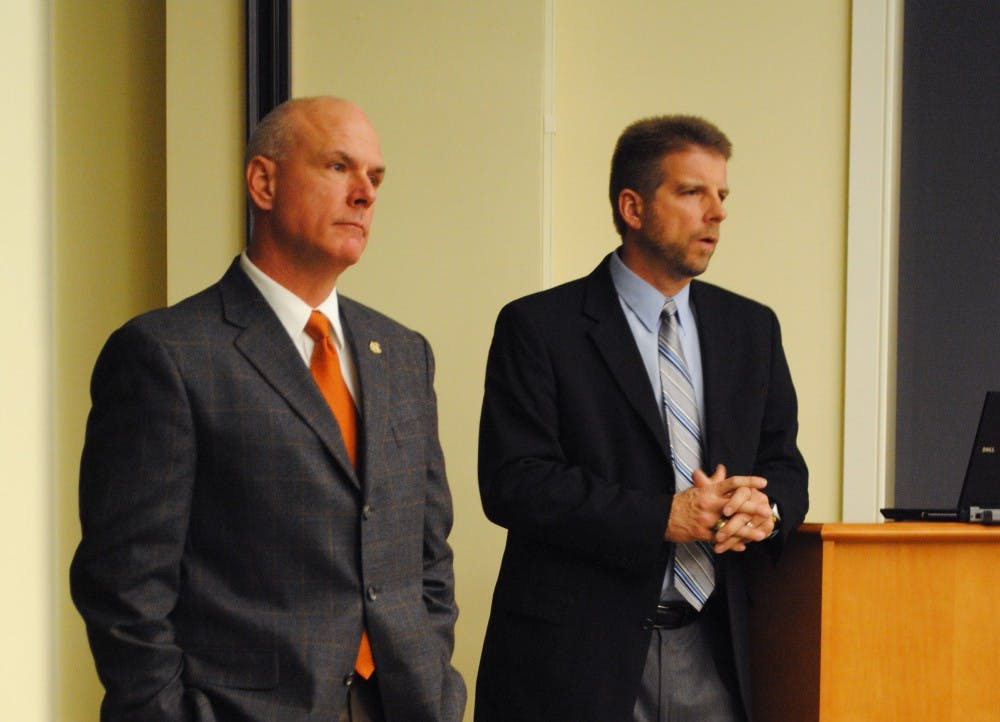In April, UNC Police Chief Jeff McCracken announced he will leave his post on July 1. With the departure date approaching, the University is whittling down its short list, and invited two of the finalists to a moderated question and answer session in late June at Wilson Library.
Charlotte-Mecklenburg Police Department Deputy Chief Johnny Jennings has 27 years of experience in the CMPD and currently manages the Administrative Services department. He’s led police operations for the NBA All-Star Game, the Democratic National Convention and he graduated from the FBI National Academy in 2010.
“We have to do a lot to rebuild or build trust with the community,” Jennings said. “Any time you have major incidents or controversial things, such as obviously the Silent Sam statue, you risk losing a lot of ground that you might have built up over the years.”
Jennings noted the pride associated with being part of a University community leads to differences in policing approaches compared to work done in a municipality like Charlotte.
“There's 30,000 students there, many of them their first time with any significant separation from their home is when they went off to college,” Jennings said. “Also the difference is everybody there, whatever capacity you’re in: You choose to be there.”
Jennings was part of a 5-person panel who advised UNC on its Silent Sam plan, which was presented and rejected in December. They said returning Silent Sam to McCorkle Place would have serious repercussions, including the return of significant protest activity, and warned the monument would “literally be under siege.”
Alongside recommending a free-standing building — which would ideally have limited windows and glass, along with other state-of-the-art security features — the panel advocated for the creation of a UNC system-wide “mobile force that was estimated to cost $2,000,000 annually and require the expenditure of $500,000 for equipment costs.”
“I have access to a great deal of officers,” Jennings said. “If I need access to 300 mobile field force officers then I can get that through my own department,“ he said in reference to his resources in Charlotte. “The University doesn’t have that luxury so it has to reach out to other resources. And one of the most obvious ones would be the other 16 schools in the system. However, they have limited resources as well.”
Silent Sam protest organizer Lindsay Ayling said students and community members are concerned about the possible implementation of the mobile force platoon.



